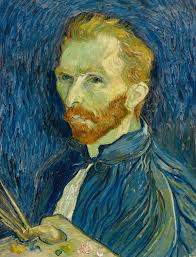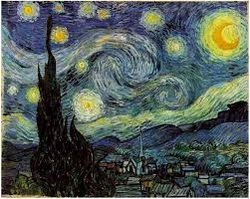
Thousands of previously untranslated letters written by the artist were among documents studied by the authors to create a research database containing 28,000 notes.
Van Gogh died in Auvers-sur-Oise, France, in 1890 aged 37. The Dutch master had been staying at the Auberge Ravoux inn from where he would walk to local wheat fields to paint.
It has long been thought that he shot himself before returning to the inn where he later died. However, it appears that he deliberately took the blame for two brothers, who were known to go drinking with him. One of the brothers liked to play cowboy with his manufactured gun. The accepted understanding of what happened in Auvers among the people who knew him was that he was killed accidentally and he decided to protect the brothers by accepting the blame. The reason being: he wanted to die.

His acceptance of the blame could have been done as an act of love for his brother Theo, for whom he was a burden. Van Gogh's paintings weren't selling well at the time.
Other revelations claimed by the authors include:
1. Van Gogh's family tried to commit him to a mental asylum long before his voluntary confinement later
2. Van Gogh fought so furiously with his parson father that some of his family accused him of killing him
3. Van Gogh's affliction, viewed as a mix of mania and depression, was a result of a form of epilepsy
The biography, Van Gogh: The Life, published on Monday, will give a greater understanding of a frail and flawed man and his art should be considered even more of an achievement.
For twenty seven years, I lived with an undiagnosed bipolar man. My brilliant first husband's highs were a wonder to see, but his depressions got worse and worse, ultimately leading to threats of suicide. I couldn't help him. He is now under treatment, which, after 25 years, doesn't seem to be helping.
If you were gifted, how would you cope with such a debilitating illness, the lack of appreciation for what you did (be it painting, writing or any other business) and no cash flow? I'd like to think I could hold steady. Yet, with mental illness, that would be hard.

 RSS Feed
RSS Feed






